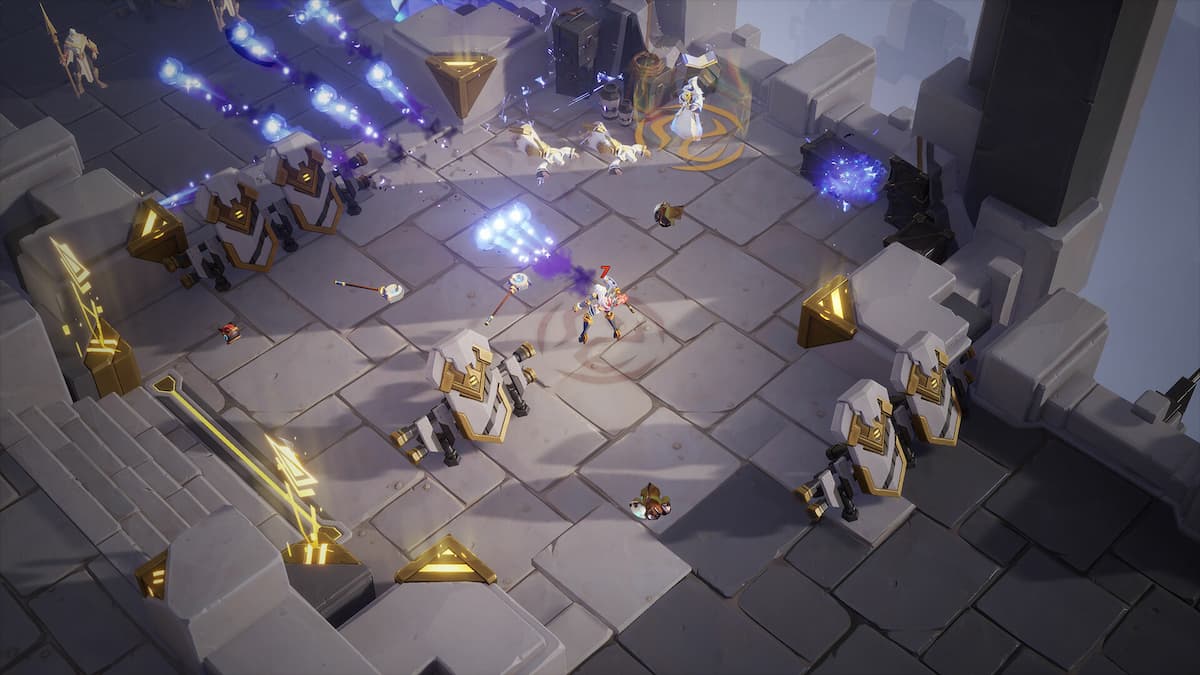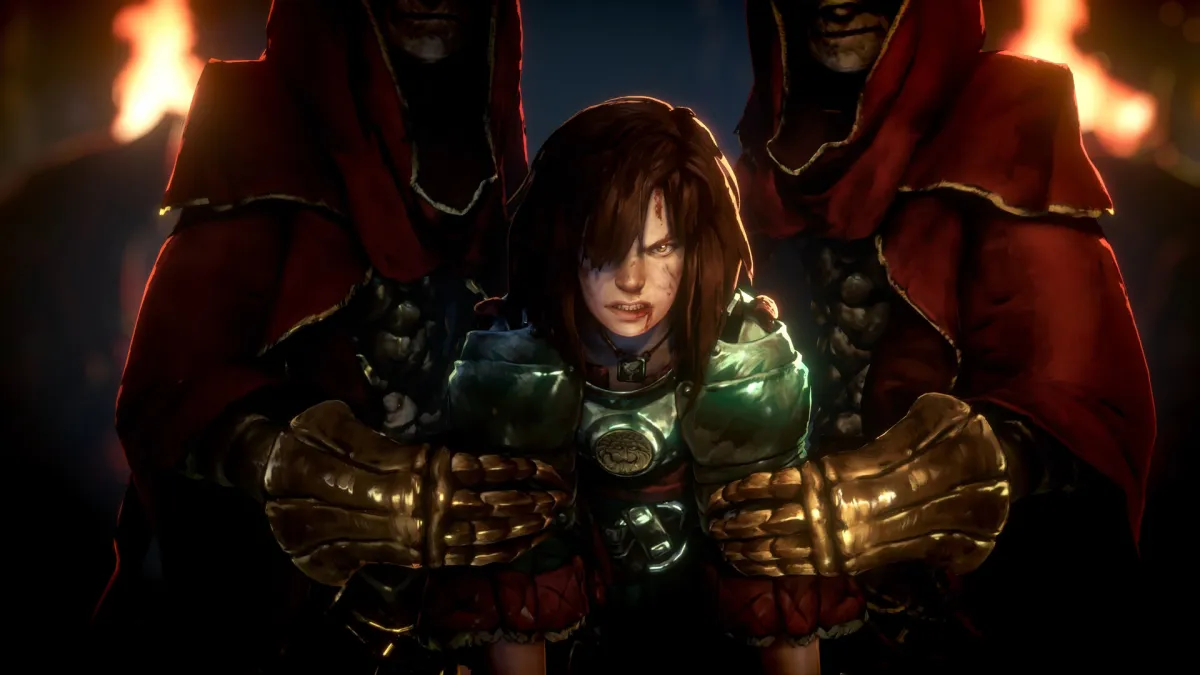It’s taken more than 40 years, but competitive gamers are finally on the threshold of mainstream respectability. Top players can earn hundreds of thousands, if not millions, of dollars, while tens of millions of fans watch them play via online video sites like Twitch. Big companies are noticing too: After a month of being courted by online video pioneer YouTube, Twitch announced earlier this week that it had been acquired by online retailing behemoth Amazon for nearly $1 billion.
Esports are poised for a breakthrough over the next couple of years— and with that growth, everyone wants a piece of the pie. New games, new investors, new developers, and new broadcast avenues (just ask ESPN) are all entering the fray. But while esports have revolved PC and console gaming for years, the biggest new entrant in the industry may have nothing to do with keyboards or controllers. New tournaments and technologies are looking to push mobile gaming into the esports conversation.
“There are more than 200 million monthly active users playing Angry Birds,” touts Jared Ricardo of Skillz, a technology company that enables online tournaments and cash prizes for mobile games. “That makes Angry Birds roughly 22 times larger than Dota 2,” he adds—Dota 2 is Valve’s hugely popular team game whose recent world championships awarded nearly $11 million in prize money.
It’s a fact that both he and co-founder Casey Chafkin turn to frequently, and for good reason. By the end of 2015, smartphone owners will have downloaded nearly half a trillion apps. Games currently account for 23 percent of the mobile apps market, but constitute 70-80 percent of app downloads. These aren’t idle statistics either: 53 percent of smartphone owners play mobile games on a daily basis.
“Mobile has ‘democratized’ gaming,” says Chafkin, a life-long gamer himself.
The idea of competition in mobile gaming is nothing new. Apple’s iOS has Game Center, which features leaderboards that allow players to compare their scores with their friends. The difference between Game Center and Skillz, however, lies in the ability to hold real-money competitions.
At its core, Skillz is simply a platform that mobile games can use to enable competition. The software works behind the scenes and connects users who play a game to a network that allows them to challenge each other and compete in tournaments in games like Survival Run by Bear Grylls. Skillz also facilitates mobile transactions, including payment of participation fees and distribution of prize money.
Mobile payments are familiar territory for the Skillz team. Chafkin and his co-founder Andrew Paradise had previously worked on a platform called Aislebuyer. The technology enabled mobile self-checkout without dedicated front-of-store hardware, allowing consumers to bypass long checkout lines. Financial software giant Intuit acquired the project in 2012 and developed it into their own solution, Intuit GoPayment.
Through this kind of technology, users who play Skillz-enabled games are able to participate in two types of competition. Practice competitions allow users to compete for fun with no money involved. Pro league competitions or “micro-competitions,” have real money prizes, comprised of buy-in fees from participants.
Since the company introduced the platform, these micro-competitions have reached significant volume. Skillz facilitates over $10,000 in prizes per day through more than 50,000 micro-competitions, according to a recent press release. These prizes range from $1 to $1000 for as little as $0.60 per match. According to Ricardo, the company is on track to pay out “tens of millions in mobile esports prizes by 2015.”
The specific use of the term “esports”, however, is certain to cause some friction. While modern esports titles require perfect timing, control, and creativity, putting Angry Birds on the same pedestal may be hard to swallow.
“Esports is accessible only to hardcore experts, while mobile is drawing in everyone,” Chafkin says. “In order to have a successful esports industry, you need to engage everyone from the casual to the hardcore. Where would a professional sport like the NFL be if it wasn’t for pee-wee football and corporate touch-football leagues?”
Skillz is not the only company that uses the term “esports” when referring to mobile games. In Early August, Chinese esports organization World Cyber Arena announced that it would hold a $2.2 million tournament featuring Chinese mobile games Dota Legend and CQB Online.
And industry pioneers certainly don’t dismiss the idea of mobile esports.
Robert Ohlen, CEO of one of Europe’s premier esports competitions, Dreamhack, has strong opinions about what makes an esport—“the amount of complexity vis-à-vis the input from the gamer,” for one.
“Some platforms are more ‘esports’ than others,” he says. For him, PCs and Macs sit at the top of the pecking order, followed by consoles, tablets, and smartphones.
However, both Ohlen and Chafkin share one opinion in common: esports is about passion. In Ohlen’s mind, esports requires “a vibrant and passionate community.” With that community, he says, “games don’t matter.”
“It doesn’t take away from the competitive Dota player if you have people competing in Survival Run by Bear Grylls,” says Chafkin
Chafkin blames the lack of complexity in mobile gaming on pigeonholing in the mobile app market. By his reckoning, mobile developers’ quick adoption of free and casual games has more to do with the youth of the mobile app market than a lack of demand: “As the player population has grown, you’ve seen commensurate growth in the complexity of the games developed. Mobile games will evolve well beyond where they are now.”
That evolution will need to be extensive in order to convince the skeptics; Ohlen’s not the only one who puts mobile games at the bottom of the esports pecking order.
Despite this barrier to entry, Skillz remains optimistic. “We’re working with over 350 game studios ranging from 1-man studios to Glu Mobile,” says Chafkin. Glu Mobile are the developers of the popular Kim Kardashian and Deer Hunter games.
“In the near-term, our goal is to enable competitive gameplay in every mobile game,” Chakfin said. “In the long-term, it’s to help esports surpass regular sports.”
With just a fraction of 200 million user Angry Birds audience, Skillz may have a chance of doing just that.





